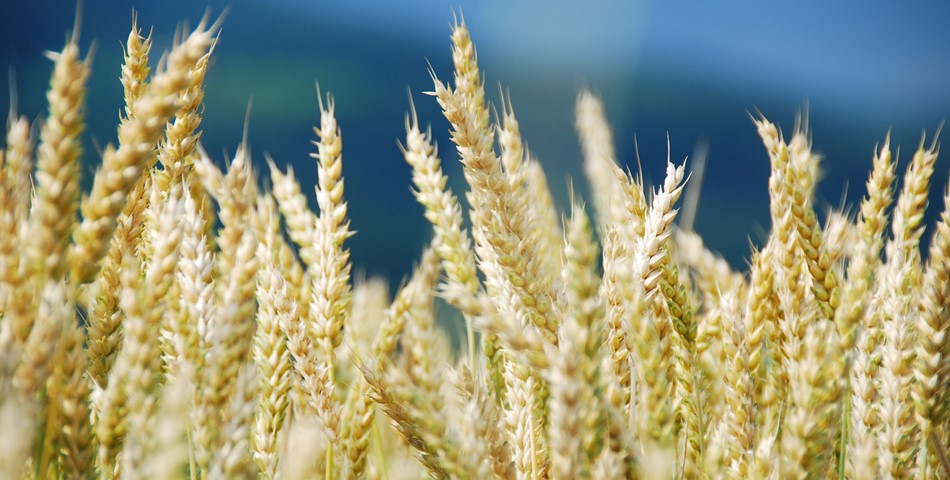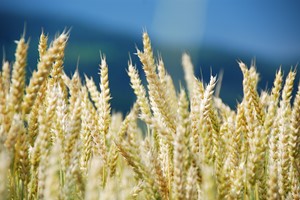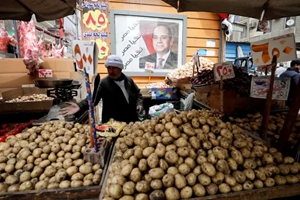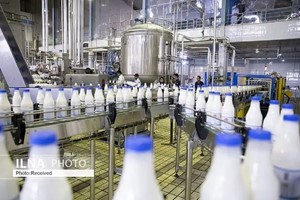With a population of 90 million, Egypt's agriculture sector faces a range of challenges. The annual food and beverage inflation rate registered 13.8 percent as of October 2016, up significantly from 11 percent a year earlier, according to a report by Oxford Business Group. Given that the Egyptian pound was further devalued in November 2016, the inflation rate was expected to continue to rise in 2017. Other ongoing impediments to growth include the low availability and high cost of arable land. All these lands are located along the Nile and across the Nile Delta, which is Egypt's sole source of moving freshwater. In addition, land irrigation and underdeveloped agricultural infrastructure are some of the major issues confronting the agriculture industry in this country. Therefore, the current government has set out a series of ambitious agriculture-focused programs in order to address these challenges. The state's efforts to irrigate regions of the desert, to make it useful as farmland, have the potential to expand the nation's total supply of arable land by one-sixth by the end of 2018. The Nile River is greatly relied upon to provide fresh water for agricultural production and human consumption. In addition, the government put the Sustainable Agriculture Development Strategy 2030, which aims to increase agricultural sustainability and effectiveness. It consists of improving productivity of land and water units, promoting food security, increasing competitiveness in Egypt's agriculture sector, fostering investment in agriculture, and creating job opportunities. The strategy calls for developing strong producer associations and supporting smallholder in marketing. It also stresses on the partnership between the private and public sectors to enhance the quality of products. Although, the agriculture sector is witnessing a growing involvement of private investors, it remains dominant by smallholds. "The inefficiencies in the sector are enormous, which means there are huge opportunities for improvement," Tony Freiji, president and CEO of the Wadi Group said. "The government is increasingly realizing that their job is not to operate the industry themselves, but to ease the conduct of business for the private sector," he added. Egypt produces a wide range of crops and other agricultural products, including cereals (wheat, corn rice), fruits and vegetables, sugar, cotton, dairy products, livestock and fish, among others. Egypt ranked as the world's top importer of wheat in 2015. The USDA reported that total wheat imports for 2014/15 reached 11.5m tons, with preliminary estimates for the 2015/16 season at 11m tons as of late 2015, which is consistent with the average over the last five years. Total cereal imports for 2015/16 were expected to reach 19.1m tons, which is consistent with the previous year, but 9 percent higher than the last five years. On the exports level, the country is having a good performance. According to another report by Oxford Business Group, Egypt is a major producer and exporter of fruit and vegetables. In the first quarter of 2016 alone fruit exports stood at 411,491 tons, as compared to 70,710 tons of a variety of fruit imports. During the same period, meanwhile, vegetable exports exceeded 174,250 tons, while imports were just 1372 tons. Major fruit and vegetable crops produced for both export and domestic consumption in Egypt include tomatoes, potatoes, olives, sweet potatoes, onions, dates, oranges, grapes, and stone and pome fruits.


Country Reports - Egypt
Egypt Implements Optimistic Plans
to Advance Sustainable Agriculture
May 2017

The agriculture sector is a cornerstone of Egypt's economy, in terms of both overall value- added and employment. In 2015, the industry accounted for around 11 percent of the country's GDP, according to a report by Bank Audi, making it the fourth-largest contributor to the economy for the year. In the same period the sector employed between 30-40 percent of the country's workforce, according to estimates prepared by the UN Food and Agriculture Organization (FAO). The sector is facing many challenges related to water scarcity and agricultural infrastructure. Thus, the Government designed the Sustainable Agriculture Development Strategy 2030 to address the sector's challenges and put plans to support agricultural activities. It is also trying to open new opportunities for domestic & foreign investors alike to expand the sector and achieve sustainability.











